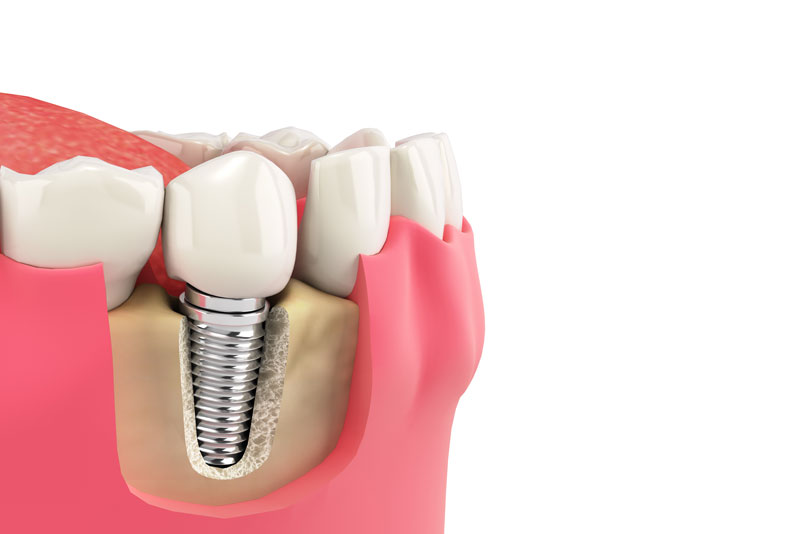Bruxism, the medical term for teeth grinding, is a condition that affects millions of people worldwide. While it may seem like a harmless habit, persistent grinding can lead to a range of dental complications, including (in the worst-case scenario) tooth loss. Consequently, many bruxism sufferers may find themselves considering dental implants as a solution. However, can those with a history of bruxism qualify for this procedure? This blog aims to delve into this question, shedding light on the relationship between bruxism and dental implants. We’ll explore the potential challenges and considerations that both patients and dental professionals must address to ensure successful implantation. Whether you’ve been dealing with bruxism for a short time or it’s a longstanding issue, we’re here to provide valuable insights to guide your decision-making process.
Understanding Bruxism: Causes and Symptoms
Bruxism can be classified into two types: awake bruxism and sleep bruxism, both involving involuntary clenching and grinding of teeth. A range of factors may provoke bruxism, including stress, anxiety, abnormal bite, missing or crooked teeth, or a sleep disorder such as sleep apnea. Symptoms often include jaw pain, headaches, worn-down teeth, and disrupted sleep. It’s essential to note that bruxism may not cause discomfort for everyone, but over time it can lead to significant dental damage that requires professional treatment.
The Impact of Bruxism on Dental Health
Prolonged bruxism can have a severe detrimental impact on dental health. The excessive force exerted on the teeth can cause them to wear down, chip, or even fracture. This can lead to heightened sensitivity, pain while chewing, and in severe cases, tooth loss. Beyond damage to the teeth themselves, bruxism can also strain the jaw muscles, leading to temporomandibular joint (TMJ) disorders. Patients may experience difficulties in opening and closing their mouth, along with a clicking or popping sound in the jaw. These complications significantly affect the quality of life and may require extensive dental intervention.
Can Bruxism Patients Receive Dental Implants?
The suitability of dental implants for bruxism patients is a complex issue. On the one hand, dental implants could offer a permanent solution to replace damaged or lost teeth due to bruxism. On the other hand, the continual grinding could damage the implant or the crown, leading to implant failure. Implants, while strong, can’t endure the constant force of grinding quite as well as natural teeth can. Therefore, it’s not an automatic disqualification, but several factors must be considered. These include the severity of the bruxism, the patient’s overall oral health, and commitment to mitigating their bruxism. A comprehensive evaluation by a dental professional is essential to make this decision. If approved for implants, managing bruxism is crucial, which might involve behavioral therapies, dental splints, or even medication in some cases.
Preventive Measures and Treatments for Bruxism
While bruxism can’t be entirely cured, symptoms and damage can be reduced through proactive management. For some, stress reduction techniques like yoga, meditation, or counseling can alleviate tension causing bruxism. Regular dental check-ups play a crucial role in detecting early signs of grinding and implementing preventive measures. Dentists may provide custom-made mouthguards or splints to mitigate tooth damage from nighttime grinding. In severe cases, corrective dental treatments such as reshaping or reconstructing the biting surfaces using inlays or crowns may be suggested. Incorporating these preventive measures and treatments can preserve the longevity of your natural teeth and, if necessary, protect your dental implants.
Grandridge Dental Are Your Dental Implant Experts
At Grandridge Dental, we understand the complexity of dental conditions like bruxism and the profound impact they can have on your oral health and overall well-being. Our expert team possesses extensive experience and knowledge needed to provide comprehensive solutions, for those who struggle with bruxism. If you’re a bruxism sufferer contemplating dental implants or if you’re searching for effective strategies to manage your condition, don’t hesitate to reach out. It’s time to put an end to the discomfort and uncertainty of bruxism and embark on a journey toward improved dental health. Contact Grandridge Dental today for a consultation – because we believe everyone deserves a healthy, confident smile.



